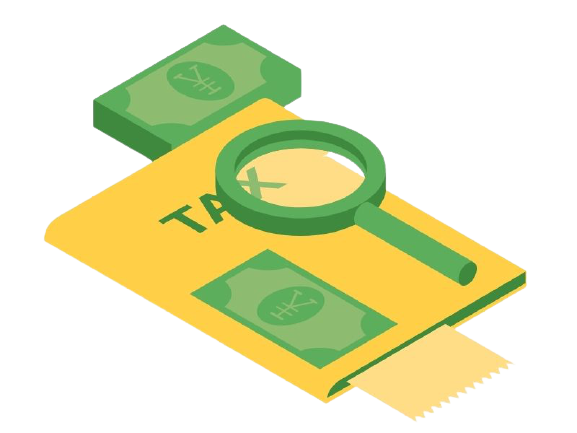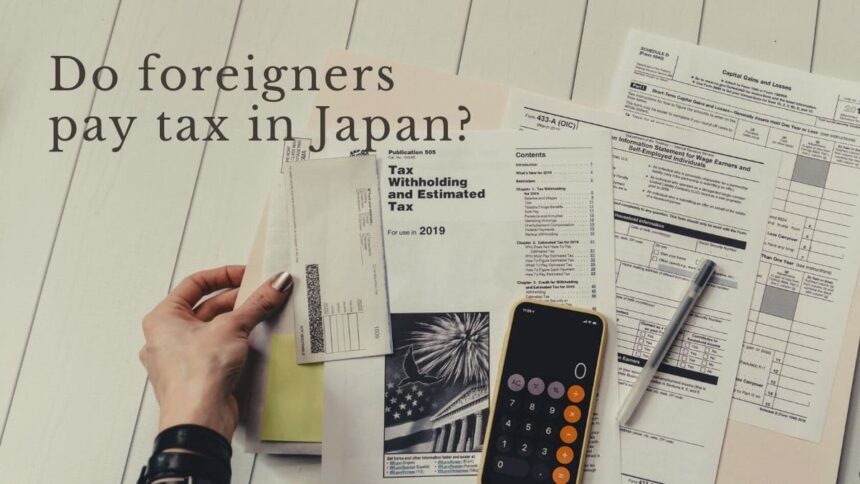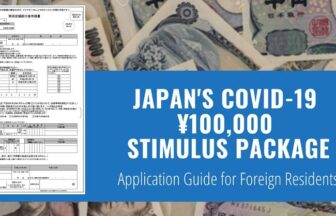If you are an overseas worker in Japan, do you have to pay taxes? This question is frequently asked by those who planned to work abroad.
Although Japan offers a competitive salary, checking first the details of your net income from your gross income is quite important. So, knowing the deductible expenses, such as income tax, will surely help you decide whether to take the job or not.
This compulsory amount that you have to pay for the government in your country is just the same when you are in Japan. You will be subjected to taxes when working in Japan, equally to the locals.
Therefore, you might wonder about the taxation policy for foreigners working in Japan. You might also come up with questions such as:
-
- What is Japan’s tax system compared to the world?
- What are the types of taxes in Japan for foreign workers?
- What are the differences between the taxes of a resident vs. a non-resident?
- How to calculate your income tax?
At the end of this article, you will be able to gain insights about taxes in Japan for foreign workers. Keep reading.
Taxes in Japan Compared to the World

Tax in Japan is higher compared to other countries. Four factors contribute to this very fact. First, social security costs are high. Second, declining birthrate and aging population. Third, Japan has a progressive tax system which means the bigger your revenue, the bigger your income tax is. Lastly, the political and educational system is expensive.
Below is the list of countries with income tax compared to Japan. Please note that the figures below are the highest marginal income tax rates.
- Sweden 52%
- Japan 55.945%
- New Zealand 33%
- Netherlands 49.5%
- Saudi Arabia 2.5%
- UAE 0%
- UK 47%
- USA 51.8%
- Zambia 30%
- Vietnam 35%
National income tax for foreigners is paid by permanent residents, non-permanent residents, and non-residents. Please note that non-residents pay for income tax in Japan with 20% plus 2.1% surtax. On the other hand, permanent and non-permanent residents tend to pay higher income tax because of their income from local and abroad. For better understanding, we recommend you to visit your municipal and prefectural office.
Let us consider the social security cost first. Elderly people are the most who receive medical care. And since there are many elderly pensioners than young ones, younger generations tend to pay higher taxes, doubled. On the other hand, taxes are used for discounted health care for everyone.
Education in Japan is compulsory and it is free(almost free). However, because students have to finish their education which takes longer, their school fees are covered by worker’s taxes. That is not only the case.
Politics in Japan costs higher too. Politicians receive their salaries, bonuses, and expenses such as transportation fees. To make it clear, let us take the time to consider the table below. We will compare Japan and Canada, including the benefits that people receive.
|
Japan |
Canada |
|
|
Medical Insurance |
Public health insurance Insurance premiums 30% self-pay Medicine and dental treatment covered by insurance |
Public health insurance No insurance premium No self-pay Medicine and dental treatment are not covered by insurance |
|
Pension |
Two pensions, national pension, and welfare pension Both require insurance premiums |
There are two public pensions, OAS and CPP. OAS has no insurance premiums. There is also a government-registered personal asset management plan. |
|
Education |
Compulsory education 9 years Tuition-free (or almost free) |
13 years of compulsory education Free tuition fees Enriched ESL and home schools Enriched student insurance benefits |
|
Children’s Allowance |
0 to 15 years old 10,000 to 15,000 yen per child per month No local child allowance |
0 to under 18 years old Up to $ 533 per child per month (approx. 45,000 yen) State-specific children’s allowance |
The table above shows that it is good to live in Japan if you are too young or too old, but when you reach the age wherein you have to work, get ready for paying taxes. Eventually, younger generations and elderlies will benefit and that is okay.
Types of Taxes in Japan for Foreign Workers
Japan has many types of taxes. Amongst others are the national tax, the local tax, and the consumption tax.
So, what are the other types of taxes that apply to foreigners in Japan?
Aside from income tax, foreigners are subject to other taxes as well. To zoom in on taxes applied only to those employed foreign nationals, here are the three types: income tax, resident tax, and inheritance tax.
Income Tax
This is your tax whenever you receive your pay or salary. In Japan, all working people are obliged to pay income tax. This is deducted from your income from the first day of January each year.
Please note that the range of taxes varies depending on foreign worker classification. Check out your residential form for your classification. To compute your income tax, follow this formula.
(Income tax amount = Income amount x Tax rate)
You are also allowed to reduce tax with income tax deduction. Some deductibles are miscellaneous loss deduction, donation deduction, and basic deduction.
To compute your income tax with an income tax deduction, follow this formula.
(Income tax amount = (income amount -income deduction amount ) x tax rate -tax credit amount)
Resident Tax
This is a tax paid to the local government in which you live and consists of two types: prefectural tax and municipal tax. To compute this tax, follow this formula.
(Resident tax amount = income percent + per capita rate)
The formula above consists of income percent and capita rate. Income percent is calculated by multiplying the previous year’s income amount by 10% (municipal tax 6% + prefectural tax 4%). The Capita rate depends on your region but it is around 5,000 yen.
Inheritance Tax
This is a tax that may be paid when the property of a deceased person (real estate, securities, deposits, and savings, etc.) is inherited. To compute Inheritance tax, follow this formula.
(Inheritance tax amount = Inheritance property-Basic deduction x Tax rate-Deduction amount)
This tax is very complicated. It is advised to consult an expert. This way, you can file before the 10-month deadline.
Did you know?
Along with Western countries, Japan also uses the progressive tax system. When you reach the first income bracket, you will be subjected to the first tax rate. Then, the remaining amounts will be subjected to the tax rate following the latter tax rate by your taxable income.
Resident Taxes vs. Non-Resident
Are there any differences in the scope of taxation between residents and non-residents in Japan? Yes!
To start with, residents are those residing in Japan for one year and more. Non-residents are those who do not qualify as residents. However, both of these classifications are subjected to income tax.
Consider the table below.
|
Permanent resident |
Non-resident |
Non-resident (special cases) |
|
|
Income other than foreign-sourced income (paid within Japan) |
Taxable |
Taxable |
Taxable |
|
Paid outside Japan (foreign-sourced income, remitted to Japan) |
Taxable |
Taxable |
Non- Taxable |
|
Paid outside Japan (foreign-sourced income, other ways) |
Taxable |
Non- Taxable |
Non- Taxable |
|
Paid within Japan (foreign-sourced income) |
Taxable |
Taxable |
Non- Taxable |
How do we know our tax rate? Remember that to compute income tax, you multiply your income amount by the tax rate. The table below assesses your tax rate.
|
Income Amount Bracket |
Tax Rate |
|
Under 1,950,000 yen |
5% |
|
Over 1,950,000 yen but under 3,300, 000 yen |
10% |
|
Over 3,300,000 yen but under 6,950, 000 yen |
20% |
|
Over 6,950,000 yen but under 9,000,000 yen |
23% |
|
Over 9,000,000 yen but under 18,000,000 yen |
33% |
|
Over 18,000,000 yen but under 40,000,000 yen |
40% |
|
Over 40,000,000 yen |
45% |
How to calculate your income tax?
To calculate your income tax, follow this formula.
Income Tax=Income Amount × Tax Rate.
For example, what will be your income tax if your earned income amount is 3,000,000 yen?
To compute, income tax = 3,000,000 yen x 10. We will use the tax rate of 10% since the income amount is over 1,950,000 yen but under 3,300,000 yen. To conclude, your income tax is ¥300,000. Is this right? No!
Please note that Japan uses a progressive tax system. This means that the more money you make, the bigger tax you will pay. To be more understandable, if you have an annual income of ¥3,000,000, you will have to deduct 5% from your ¥1, 950,000. Next, deduct 10% from your remaining ¥1,050,000.
Let us do the numbers.
¥1,950,000 (the first bracket of income amount) + ¥1,050,000 (the remaining amount from deducting ¥1,950,000 to ¥3,000,000) is equal to ¥3,000,000 (annual income).
5% of ¥1,950,000 is ¥97,500.
10% of ¥1,050,000 is ¥105,000.
Thus, your annual income tax is ¥202,500.
What if you have a deductible on your annual income?
Let us consider this one. If you have an annual income of ¥3,380,000, what will be your taxable amount if you have a basic deduction of 380,000?
First, deduct or subtract the ¥380,000(which is the amount of basic deduction) from ¥3,380,000. That will leave you a taxable amount or adjusted gross income of ¥3,000,000. Now, you know the drill. Follow the first example.
FAQ
Residents and non-residents must submit an income tax return for the income earned each year. You must pay the tax owed between February 16 and March 15 of the following year.
What are the classifications for non-residents?
(a) non-residents having an office, etc., in Japan, (b) non-residents continuously engaged in construction or assembly for one year or more, or doing business through a designated agent, or (c) other non-residents.
Refer to the table below.
|
Employment Income |
Employment Income Deductions |
|
1,625,000 yen |
550,000 yen |
|
Over 1,625,000 yen and up to 1,800,000 yen |
(employment income)×40%-100,000 yen |
|
Over 1,800,000 yen and up to 3,600,000 yen |
(employment income)×30%+80,000 yen |
|
Over 3,600,000 yen and up to 6,600,000 yen |
(employment income)×20%+440,000 yen |
|
Over 6,600,000 yen and up to 8,500,000 yen |
(employment income)×10%+1,100,000 yen |
|
Over 8,500,000 yen |
1,950,000 yen |
This is 2.1 % of your income tax. This is added to your income tax if ever your tax is withheld. Individuals and corporations are subjected to this from January 1, 2013, to December 31, 2037.
Final Thoughts
The tax rate in Japan is impressive but is reasonable. We can deem the fact that the younger and older generations can benefit from taxes paid by workers in Japan, either resident or non-resident. Personal contributions and tax may differ but it acts with one goal, to provide discounted health care, free education, and allowances. It is mandatory to pay taxes especially for foreign workers in Japan for such reasons.
There are different types of taxes in Japan. As a foreign worker, you should know the types of taxes you should pay. This will reflect on your records and your employment in Japan.
Computing the income tax in Japan is very straightforward yet confusing. If you like to understand more about income tax in Japan, it is better to consult professionals. This way, you can sort out your taxes without trouble.
Of course, learning basic things about taxes in Japan is rewarding. This is beneficial especially if you are planning to work in Japan. Are you interested in working in Japan? Visit our official website, FAIR Work in Japan.
You can also subscribe to our official YouTube channel for more interesting videos about Japan. We hope you learned many things from here!
 日本語
日本語








